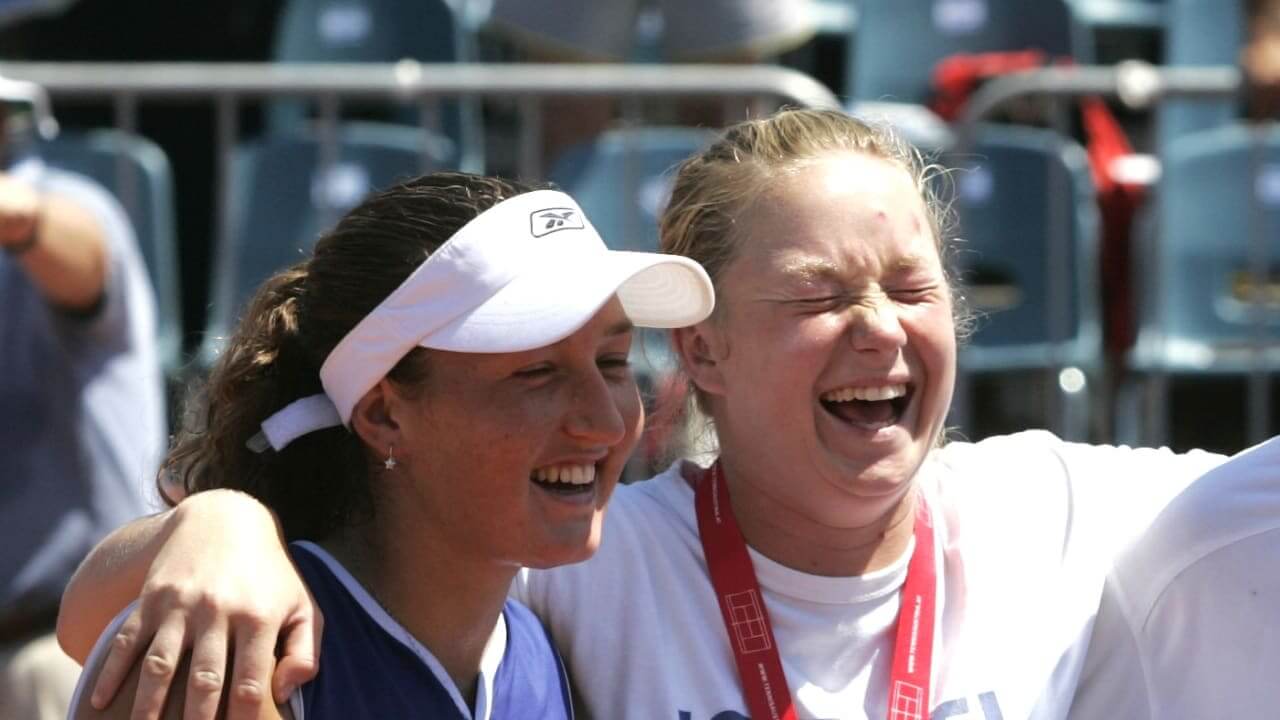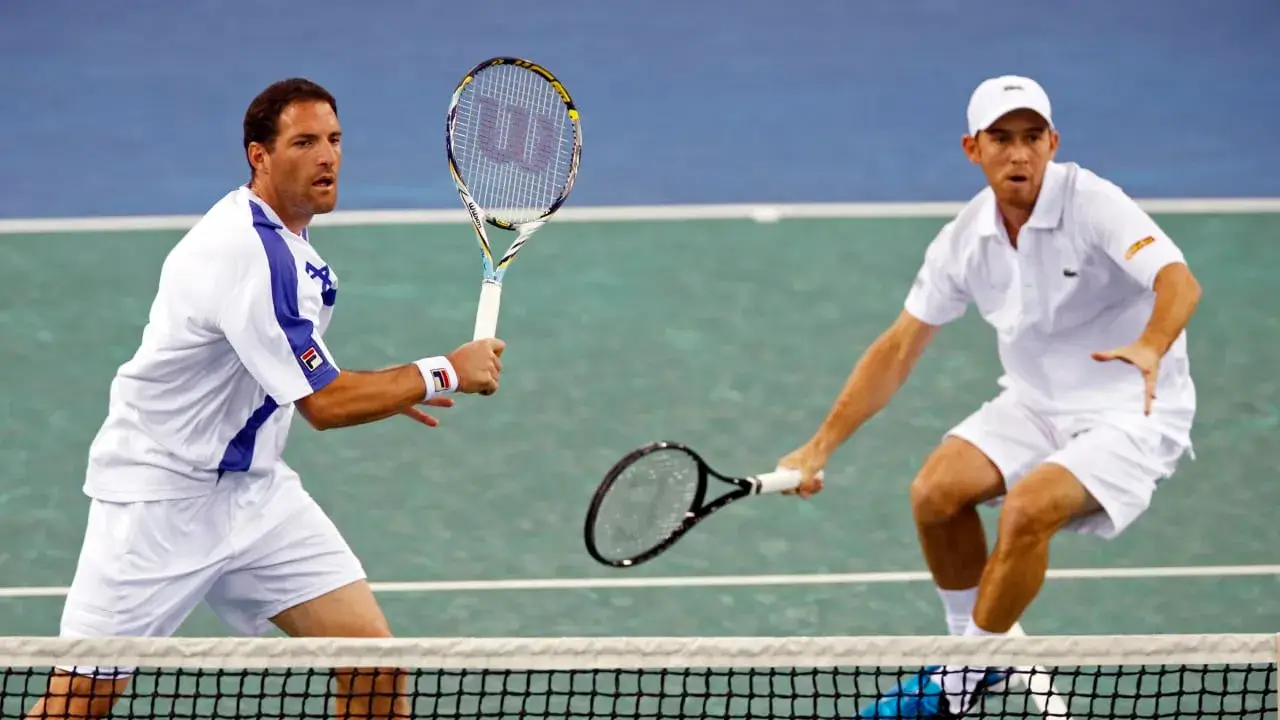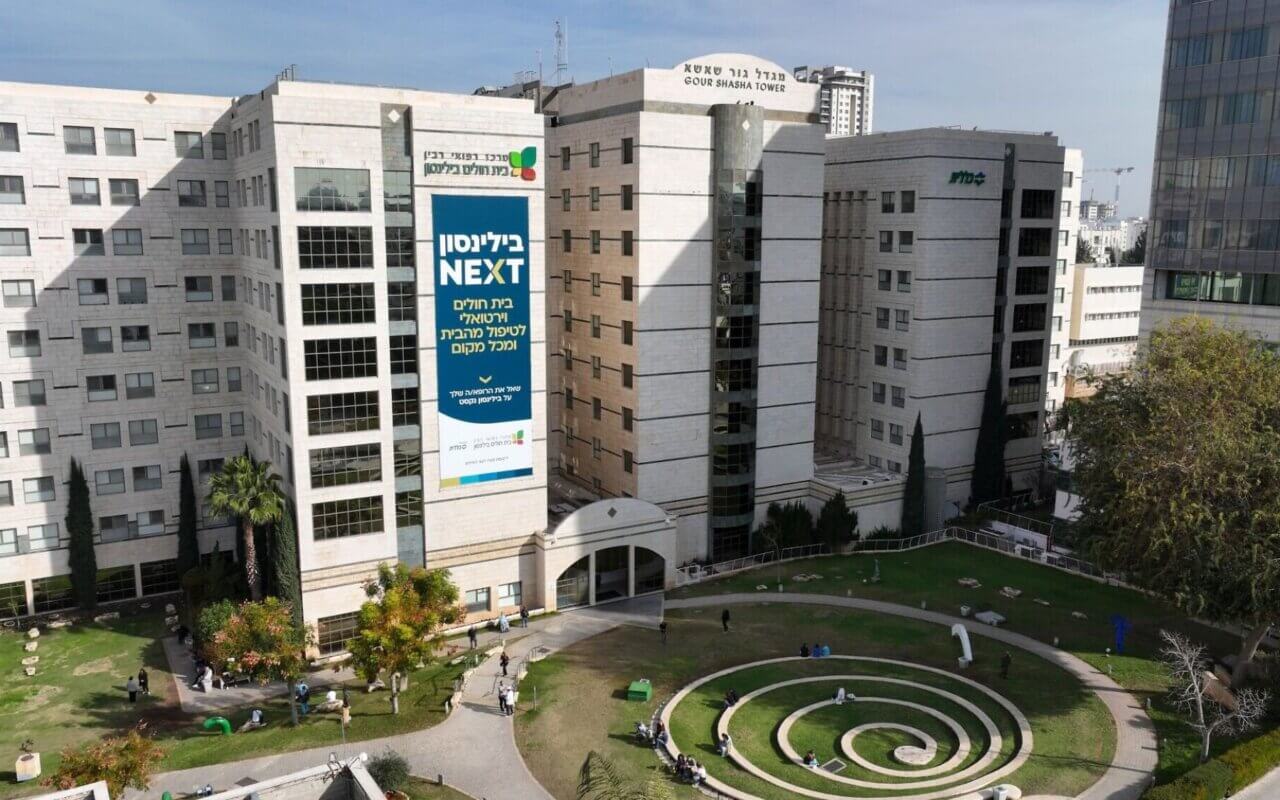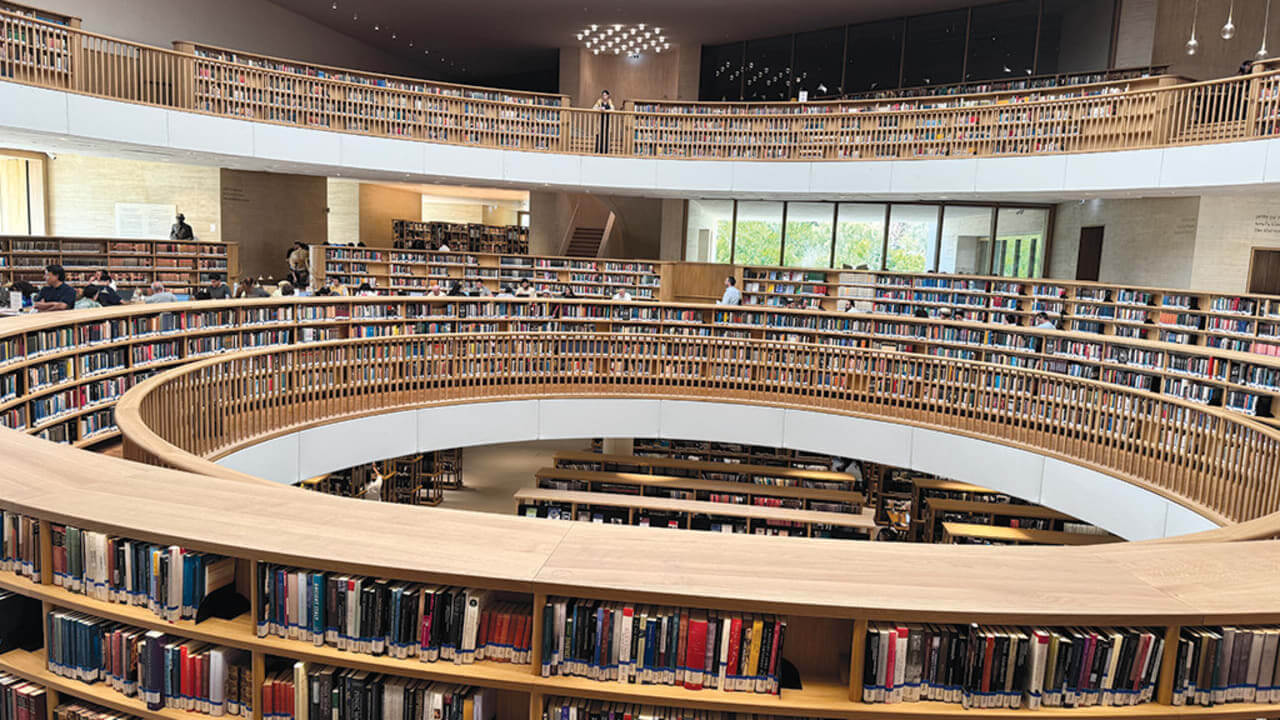YONI ERLICH (left) and Dudi Sela (right) – playing together in the Davis Cup in 2013 – icons of Israeli tennis whose successors are hopefully just around the corner.
(photo credit: CHARLES PLATIAU/REUTERS)
Getting Israeli players back to the top of the tennis landscape
YONI ERLICH (left) and Dudi Sela (right) – playing together in the Davis Cup in 2013 – icons of Israeli tennis whose successors are hopefully just around the corner.
(photo credit: CHARLES PLATIAU/REUTERS)
Exclusive: Rabin Medical Center reports genetic disease breakthrough
Study by Professor Idit Maya and her team has “significant implications, especially for Jews in Israel and the Diaspora.”
View original article on JNS.org
If Professor Idit Maya has her way, countless Jewish families in Israel and around the world will be spared from confusing information and, in some cases, agonizing decisions about possible termination of pregnancies due to the risk of hereditary diseases.
In an exclusive interview with JNS from her office and lab at the Rabin Medical Center-Beilinson Hospital, which is affiliated with the Clalit Health Services in Petach Tikvah, Maya, the acting director of RMC’s Genetics Institute and head of the research team, explained that current global standards may overestimate the risk of genetic defects in the offspring of Jewish couples.
This can cause unnecessary alarm for parents who undergo prenatal testing for genetic disease. The results of the study have “significant implications, especially for Jews in Israel and the Diaspora,” the team said.
Maya and her team, in collaboration with Professor Lena Sagi-Dain, head of prenatal genetic services at Carmel Medical Center, analyzed vast amounts of genetic data from Jewish ethnic subgroups, with the aim of estimating the risk of genetic disease in Jewish populations.

Maya’s groundbreaking study has resulted in the creation of a new genetic risk model, recently adopted by the Genetics Society of Israel. The model offers more accurate, community-specific assessments that have the potential to better guide genetic experts and physicians worldwide as they counsel their patients.
Using white paper, a dozen colorful highlighters and elaborate graphs, Maya explained both basic genetic concepts and details of the new model.
“Everyone has two copies of all genetic material. We get one copy got from our mother, and one copy from our father. Small blocks of your DNA, only three million out of the billions, will be the same on both copies—the same DNA inherited from the mother and the father.”
She went on to explain that these stretches of identical DNA, called regions of homozygosity (ROH), may be found when doctors use a genetic test called Chromosomal Microarray Analysis (CMA). This test looks at variations in the DNA to identify patterns.
ROH—identical segments of DNA that are inherited from both of the parents—may mean that the parents are related or share a common ancestor. Doctors use the test as a tool in diagnosing rare genetic diseases and in genetic counseling. But there’s no universal agreement on how large ROH regions need to be before they should be reported to doctors or patients. Genetic labs need to report ROH when there is a real worry of disease, but not create unnecessary concern when there is no real issue.
According to Maya, the amount of ROH in a person’s genome can vary depending on a person’s ethnic background, and it is critical to take this into consideration when interpreting these tests, especially for Jews. She asserted that the worldwide rules for reporting ROH that might signal a health risk may be too strict for ethnic Jewish populations.
In many small Jewish communities around the world, there was a tendency to marry within extended families and communal members. The evidence for this is in our DNA today.
Maya and her team looked at how much ROH is present in people from different ethnic backgrounds and determined whether some groups have a higher percentage or longer ROH than others. The goal was to help decide when ROH should be considered medically important, based on a person’s background.
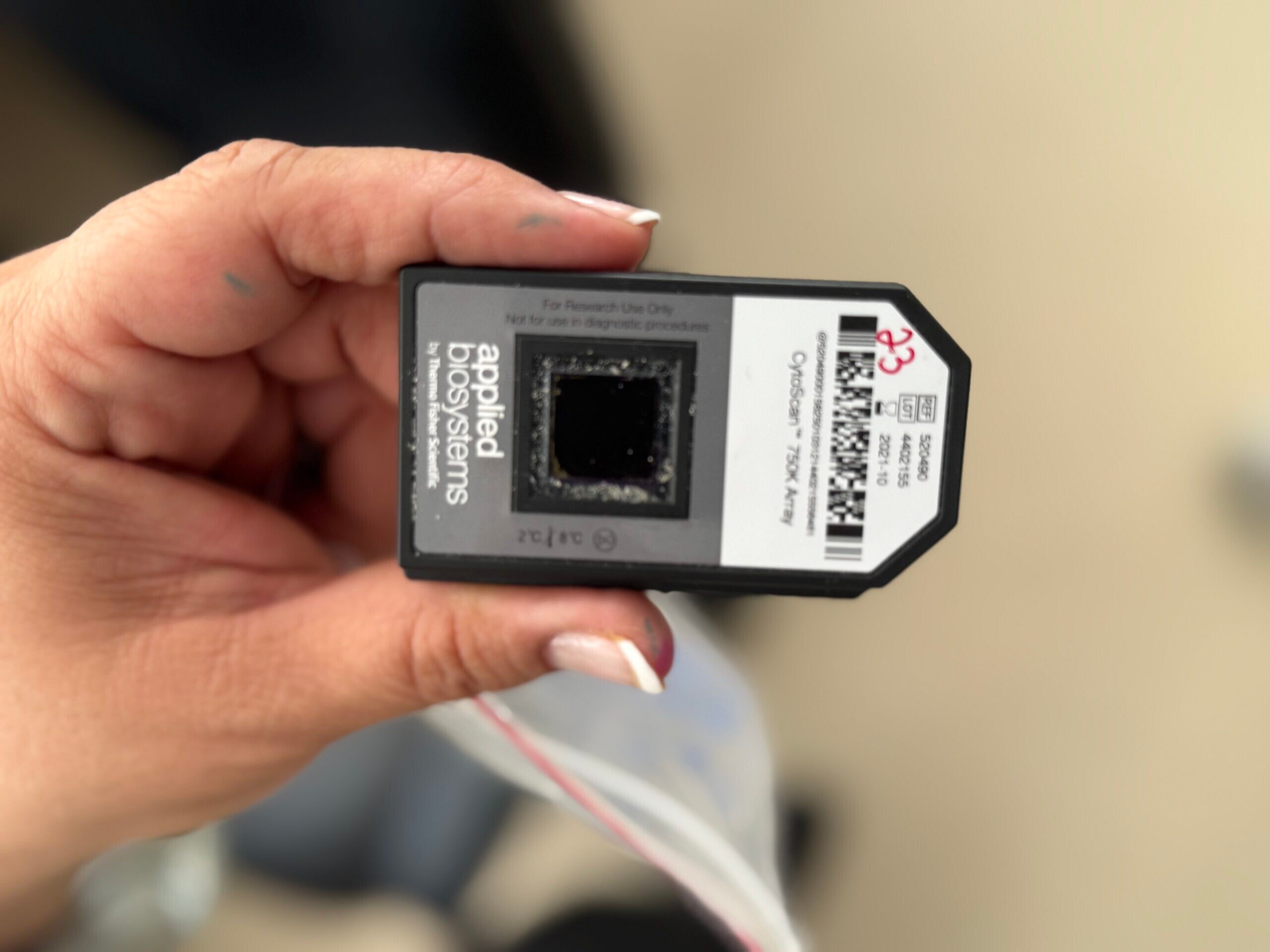
The researchers analyzed some 15,000 genetic samples from RMC, including blood and embryo data. Based on this comprehensive study, they developed a new algorithm that adapts risk assessment to the genetic profile of each population.
Importantly, the people in the study were grouped by ethnicity. Maya said, “We have something like 16 ethnic backgrounds in Israel.”
She noted that Jews in Israel are both Ashkenazi and Sephardi, originating from such places as “Bukhara, Iran, Kurdistan, Iraq, Syria, Lebanon, Libya, Afghanistan, Yemen and Ethiopia.” She also studied members of the Christian and Muslim Arab, Bedouin and Druze communities.
The team calculated the total ROH percentage of each person’s DNA and measured the size of each ROH region. They found large variations and clear differences in ROH size and percentages between the ethnic groups.
“What we found, and this is the amazing thing in this research, that we found that the size of those segments is proportional to the percentage of the total sample,” she said.
Overall, the research showed that interpreting ROH is complex and that using the current worldwide standard doesn’t work well for the Jewish community. Maya said, “American guidelines, the European guidelines, are based on 300 million people who are from different ethnic backgrounds.”
She explained further, “If we didn’t have the norm in Israel and in the specific ethnic background, we wouldn’t know the norm in the percentage, and we would have had to tell the doctor and the couple that the result is abnormal.”
The ramifications of the research, according to Maya’s team, go beyond the Israeli and Jewish populations. It has implications for the entire medical community. The new model shows that what is often labeled as “abnormal” in one population may, in fact, be perfectly normal in another.
“The universal threshold used today was originally developed for genetically mixed populations, such as those in the United States. But applying that same measure to communities with shared ancestry—such as Jews, Druze, Circassians or other ethnic communities—can produce misleading results,” Maya said.
Rather than using a rigid, one-size-fits-all global cutoff, the new model allows for a personalized “true risk threshold.” This distinction makes it possible to differentiate between normal genetic similarities—for example, among Ashkenazi, Bukharin or Christian Arab couples—and truly concerning closeness that could point to inherited syndromes and diseases linked to “genetic imprinting.”
Maya advised that genetic labs should use customized guidelines based on the population they’re working with. This can help make genetic testing reporting more accurate and meaningful for patients.
She concluded, “Our model will reduce unnecessary concerns, prevent false alarms and in some cases, even save pregnancies that might otherwise have been terminated. It’s a meaningful shift for the benefit of our patients.”
Secret Garden for All: The magic and accessibility at the National Library of Israel
Israel’s National Library is all of those things and more: it has truly become a modern-day gem since its founding in 1892.
View original article on JNS.org
Adults of a certain age likely have fond memories of their childhood neighborhood library, where they carefully selected books to bring home or listened attentively and with wonder as the librarian read stories aloud during story time. Of course they may also have memories of being “shushed” by the librarian for speaking too loudly!
Others have memories of going to the library to use encyclopedias or to read newspapers or magazines they did not have access to at home. They will also remember when libraries began to provide copy machines, free Wi-Fi, and computers and when they became virtual offices where one could spend hours working (and charging their phones).
Library users of all ages will agree that libraries have grown and evolved over the years. They are free and open to all, they are representative of the local neighborhood and society, and they are usually air-conditioned, making them a wonderful place to spend a hot summer day.
Israel’s National Library is all of those things and more: it has truly become a modern-day gem since its founding in 1892. In 2023, the National Library of Israel – built at the astounding cost of $220 million – moved into an impressive new building, very close to both the Knesset and the Israel Museum. The library boasts such amenities as several cafes and outdoor eating areas, an area for parents to read stories to children, and storage lockers for its over 40,000 monthly visitors.
The library’s Main Reading Halls are open on Sunday through Thursday from 9 a.m. to 8 p.m., on Fridays from 9 a.m. to 1 p.m., and are closed on Shabbat. Explore the library on your own, with an audio tour, or with a guide. Everyone is also eligible to apply online for a pass that allows entry to the main reading room; the process takes seconds, and a QR code for library access is sent to your mobile device in seconds.
And the National Library Law, passed in 2007, assures that libraries are accessible to everyone. The law turned the National Library into an independent company and mandates that it provide public access to its collections, including exhibitions and cultural activities. It also outlines the library’s commitment to Jewish studies, general humanities, and Islamic and Middle Eastern studies.
In addition, the National Library also documents Israel’s cultural heritage, promotes research, and serves as a cultural and educational center – for people of all ages and abilities.
Wander through the library, and you will find a large sampling of the over five million books housed here, as well as periodicals and journals, with a significant portion on open shelves in the reading halls. The library also holds a vast collection of other materials, including manuscripts, archives, maps, and musical recordings, reflecting the cultural treasures of Israel and Jewish heritage, according to its website.
Magical interactive garden
The National Library clearly takes its commitment to access and accessibility seriously. In an era where children often default to screens, the library makes it very appealing for children and families to visit. This summer, from July 27 to August 12, it has been featuring “The Secret Garden,” a magical, interactive cardboard garden where children can wander among the trees and flowers.
They can also take an interactive tour of the exhibit, Yesh Prachim Bein Madafei HaSifriya HaLeumit (There Are Flowers Between the Shelves of the National Library), which spotlights flowers in Israeli culture.
Finally, family members can enjoy Kan Tzomchim Shirim (Here Songs Grow), an original play by the National Library combined with a creative workshop.
- When: It runs Sunday through Thursday, July 27 to August 12 – three times a day at 12 p.m., 2:30 p.m., and 5 p.m. – It does not run on Friday.
- Price: NIS 45 for children ages 3-12; NIS 35 for adults. Each participant over three years old must have a ticket (including accompanying adults). Family packages can be purchased at particularly affordable prices. Special discounts for Yerushalmi club members (NIS 40), senior citizens, soldiers, reservists, members of the security forces, and evacuees (with presentation of ID).
Commitment to accessibility and inclusion
The National Library of Israel proudly employs both a Head of the Visitor Center, Tamar Sorek, and an Accessibility Coordinator for the Education Department and Visitors Center, Shiri Aran. These roles and the library’s special programming and accommodations are indicators of their commitment to accessibility and inclusion.
“From the minute the library opened its doors to the public on October 29, 2023, and we started welcoming groups, we provided physical access to all,” reports Sorek. At a recent meeting with InJerusalem at “The Secret Garden,” Sorek and Aran shared many of the procedures in place to assure the National Library is accessible to all visitors, including those with disabilities.
Approximately four times a year, the library offers “quiet hour,” where the library closes early and children with disabilities and siblings and parents who register in advance can enjoy museum tours in small groups, staffed by specially trained staff members. “They receive an introduction to the National Library – why we exist and how many books [we have]. They visit three stations and write personal letters,” Sorek shares.
The National Library has been providing tours and programming for schools serving students with a wide range of disabilities and offers adapted tours and workshops. Interested schools and families contact Aran to discuss necessary accommodations. “There is no group we say no to – ALL can come!” she reports proudly.
Sorek and Aran are particularly proud of an upcoming “Secret Garden” activity taking place on August 11 at 5 p.m. The program, geared for people with disabilities and their siblings and parents, will consist of a guided tour of “Flowers Among the National Library Shelves,” which explores the role of flowers in Israeli culture, a “Stroll Through A Blooming Cardboard Garden,” and “Songs Grow Here,” an original performance from the National Library’s creative studio.
The event, nearly identical to the one run three times a day throughout the summer, will be held in small groups. In all presentations and performances, language will be modified, simplified, and shortened. In addition, a quiet room, fidget toys, and noise-blocking headphones will be available. (www.nli.org.il/he/visit/family-visit/the-secret-garden-tzamid)
Sorek is pleased to offer this program and is already at work, along with Aran, planning additional accessible activities. “The programs offer not a different experience, but a high-quality experience in a way that suits their needs!”
The details: Accessibility and accommodations
- All of the library’s service areas, reading rooms, and elevators are wheelchair accessible.
- For the reading impaired, an automated telephone service is available during opening hours at the Reference Desk or at the Circulation Desk.
- For the visually impaired: The library has a special, modified computer station; service dogs are allowed to enter the library; and there are two programs for the blind and the visually impaired
- JAWS Screen Reader and ZoomText.
- For the hearing impaired: Special equipment is available at the Circulation and Reference Desks. Those with hearing aids can set them to “T” mode, enabling the user to communicate with the service provider more effectively. Tours offer headphones as well as tours at various times with sign language interpreters.
